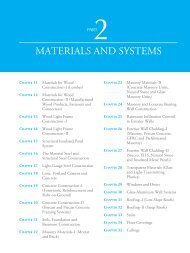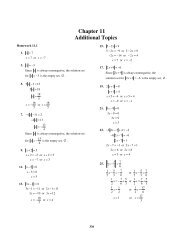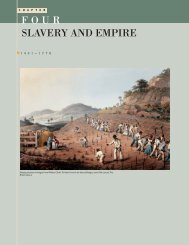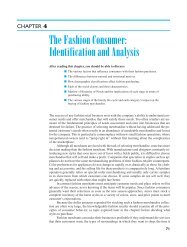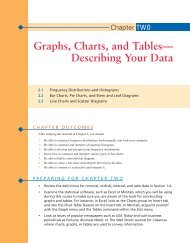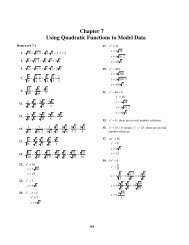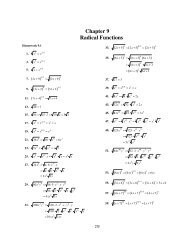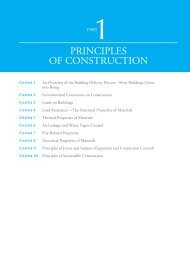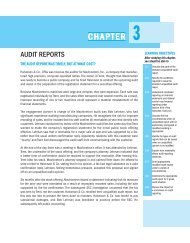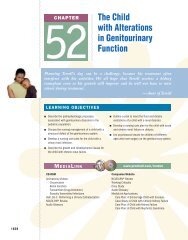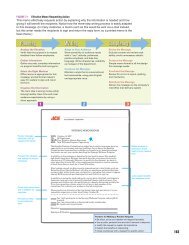Baldwin/Whiteside: Introduction to Contracts - Pearson
Baldwin/Whiteside: Introduction to Contracts - Pearson
Baldwin/Whiteside: Introduction to Contracts - Pearson
Create successful ePaper yourself
Turn your PDF publications into a flip-book with our unique Google optimized e-Paper software.
Chapter Eight<br />
___________________________<br />
FORMATION OF<br />
THE SALES AGREEMENT<br />
___________________________<br />
Here<strong>to</strong>fore, we have dealt with traditional contracts. We now wish <strong>to</strong> focus students on the UCC as<br />
written in the statutes of your state. This chapter deals with Article 2. You may wish <strong>to</strong> expand this<br />
chapter and the ones <strong>to</strong> follow by lecturing from the statute of your state.<br />
Ask the students for examples of merchants so they will realize the sole proprie<strong>to</strong>r is a merchant just as<br />
much as is the monster chain s<strong>to</strong>re. Introduce your students <strong>to</strong> the business term “sophistication.” Explain<br />
that the merchant is assumed <strong>to</strong> be more sophisticated than the consumer is.<br />
Point out that the UCC allows for one or more terms of an agreement <strong>to</strong> be left open a significant<br />
difference from common law.<br />
This chapter offers you the chance <strong>to</strong> stress again the significant terms “reasonable” and “seasonable,”<br />
important terms in contract law.<br />
Explain there are various categories of goods and ask the students <strong>to</strong> name examples of each. Durable<br />
goods are those having a long life. Fungible goods are interchangeable, such as a pound of rice. Hard<br />
goods are durable goods sold <strong>to</strong> consumers, and soft goods are non-durable goods sold <strong>to</strong> consumers.<br />
Suggested Test Questions for Chapter Eight<br />
1. Section 2-105(1) of the UCC defines [goods] as “all things ... which are movable at the time of<br />
identification <strong>to</strong> the contract for sale.”<br />
2. Section 2-106(1) of the UCC defines [a sale] as a “passing of title from the seller <strong>to</strong> the buyer for<br />
a price.”<br />
3. Section 2-103(1)(a) of the UCC defines the buyer as [the person who buys or contracts <strong>to</strong> buy<br />
goods].<br />
4. Section 2-103(1)(d) of the UCC defines the seller as [the person who sells or contracts <strong>to</strong> sell<br />
goods].<br />
5. Section 2-104(1) of the UCC defined a merchant as a person who deals in [goods] of the kind or<br />
otherwise by his occupation holds himself out as having [knowledge] or skill peculiar <strong>to</strong> the<br />
practices or goods involved in the transaction or <strong>to</strong> whom such knowledge or skill may be<br />
attributed by his employment of an agent or broker or other intermediary who by his occupation<br />
[holds himself out] as having such knowledge or skill.<br />
6. What is the significance of a buyer or a seller being a merchant? [Status as a merchant or nonmerchant<br />
affects application of the UCC.]<br />
7. According <strong>to</strong> UCC § 2-103(1)(b), the standard for determining good faith if the parties are<br />
merchants is<br />
(a) repeated performance by either party <strong>to</strong> which an objection has not been made<br />
(b) any practice or method that is regularly observed by a place, vocation, or trade<br />
20



